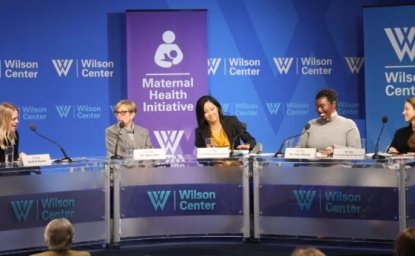The Brazil Institute Mourns the passing of Ambassador Clodoaldo Hugueney
Ambassador Clodoaldo Hugueney Filho, a career diplomat, died on May 24th in São Paulo, where he lived after retiring in 2013 as Brazil’s ambassador to China.
Ambassador Clodoaldo Hugueney Filho, a career diplomat, died on May 24th in São Paulo, where he lived after retiring in 2013 as Brazil’s ambassador to China.

Ambassador Clodoaldo Hugueney Filho, a career diplomat, died on May 24th in São Paulo, where he lived after retiring in 2013 as Brazil’s ambassador to China. He was 72. A lawyer and economist, Hugueney was previously ambassador to Venezuela, the European Union and the United Nations in Geneva. In Brasilia, he served as Undersecretary for Economic Affairs at the Ministry of Foreign Relations. An expert on trade and economic integration, he collaborated with Fundação Getúlio Vargas, Fundação Armando Álvares Penteado, and the University of São Paulo Institute of International Relations. Last April, he was named president of the Brazil–China Business Council. Ambassador Hugueney was a friend of the Brazil Institute.
In June 2014, prevented from traveling to Washington to participate in a workshop on trade policy and new modalities of trade negotiations organized by the Center for Global Development and the International Institute of Sustainable Development, he asked the Brazil Institute’s director, Paulo Sotero, to summarize the paper he had prepared. Hugueney‘s last major contribution to public policy debate on trade, the text, available here, reflected the exhaustion of Brazil’s trade strategy and the author’s concern with the country’s increasing economic isolation.
“The failure of the Doha Round Brazil’s preferred forum for trade negotiations has left trade negotiators without an agenda,” wrote Ambassador Hugueney. “The prospects for the EU-MERCOSUL negotiation, the only negotiation of a free trade area of any significance involving Brazil and its partners in MERCOSUL, do not look very promising. On the regional front, the integration process is stalled due to the inability of MERCOSUL to put its house in order. The Pacific Alliance changes the focus from the Atlantic to the Pacific and is an answer to the displacement of the centre of globalization to the Pacific East coast. The launching of two new major negotiations in the Pacific and in the Atlantic areas, the TPP and the TTIP, pose major risks for Brazilian exports.” Always hopeful, Hugueney added that “the end of the commodities super-cycle that contributed to obscure the deterioration of Brazilian competitiveness in world markets has led to a reappraisal of our trade policy as an instrument of development.”
Photo courtesy of Agência Brasil.

The Brazil Institute—the only country-specific policy institution focused on Brazil in Washington—aims to deepen understanding of Brazil’s complex landscape and strengthen relations between Brazilian and US institutions across all sectors. Read more


